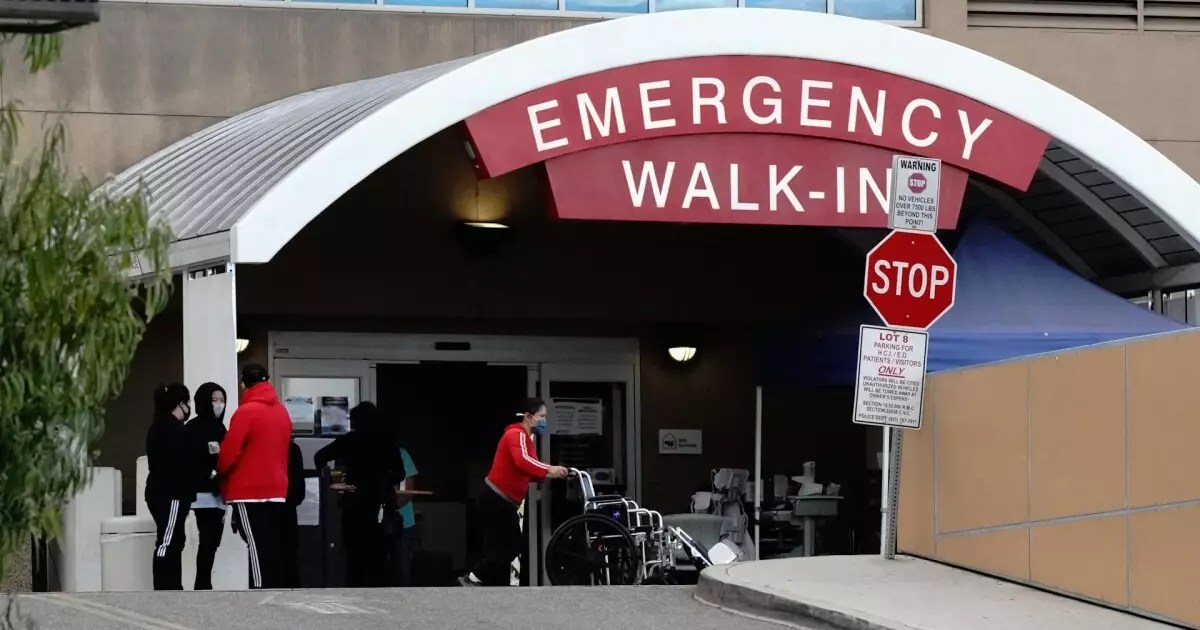As the golden state of California and its neighboring Pacific states reel from sharply declining revenue projections, a political storm brews that could alter the fiscal landscape for years to come. With an alarming expected shortfall of up to $12 billion in California, $756 million in Oregon, and an $845 million downgrade in revenue expectations for Washington State, the implications are profound. The seeming ease with which these projections have shifted demonstrates a precarious overreliance on federal funds and economic forces heavily influenced by national politics.
Governors Gavin Newsom, Tina Kotek, and Jay Inslee of the Democrat-led states are scrambling to explain this downturn. To many observers, the term “Trump slump,” coined by Newsom, symbolizes much more than a catchphrase; it embodies a broader reflection of economic vulnerability tied to federal strategies. It reveals the underlying fragility of fiscal management when state budgets are inextricably linked to the whims of national policy.
Taxing Times Ahead
Faced with these mounting fiscal pressures, tax increases appear to be the favored option for state officials. Washington’s Governor Bob Ferguson has recently enacted a $78 billion two-year operating budget laden with $7.8 billion in new taxes, including a substantial increase to the state gas tax. Such tax hikes are often portrayed as necessary evils, yet they expose a deeper issue: the failure to cultivate a more resilient financial ecosystem immune to the caprices of federal policy.
In this light, one must question the paradoxical nature of taxation—a means to bolster state revenues that often ultimately hampers economic growth. When wages are already stagnant and citizens are struggling to keep up with inflation, imposing additional taxes may serve only to exacerbate the situation, pushing citizens and businesses to revolt or even flee to more tax-friendly states.
Federal Dependency: A Double-Edged Sword
What exacerbates matters is the alarming percentage of state budgets reliant on federal revenues, ranging from 30% to 60%. This dependency has now shown acute weaknesses as Trump’s policy changes trickle down, creating a vacuum in state funding and forcing cuts across essential programs healthcare, education, and infrastructure. Despite warnings from financial rating agencies and analysts, the states persist in relying on federal aid and failing to prioritize an independent economic base.
The recent attempts by Governor Newsom to freeze Medi-Cal expansion reflect a desperate pivot to save funds. However, such austerity measures risk leaving millions of vulnerable Californians without vital healthcare services, raising ethical and humanitarian questions about the worth of balancing a budget over the welfare of citizens. This raises a poignant query: what sort of society prioritizes budgetary equilibrium over human lives?
The Role of Legislative Accountability
Legislative bodies across these West Coast states are currently at a crossroads, faced with cutting programs and slashing funding to balance budgets. A recent obscure legislative maneuver known as the “suspense file,” allows the powerful chairs of the Assembly and Senate Appropriations Committees to eliminate bills with significant cost implications without a robust explanation. This practice provides a perplexing lens into a system heavily shrouded in opacity, where accountability appears curiously absent in favor of fiscal conservatism.
While budget constraints are a reality for lawmakers, the lack of transparent decision-making does a disservice to the citizens they represent. The careless elimination of bills designed to enhance Medi-Cal services and infrastructure development prioritizes shortsighted solutions over sustainable growth. This approach could breed discontent among voters who feel marginalized by their elected officials or even disenfranchised altogether.
A Failing Formula for Economic Progress
The underlying reality is this: California, Oregon, and Washington State are experiencing the harsh ramifications of a failing economic blueprint. With every cut made in education, healthcare, and social services, the states inch closer to an unvirtuous cycle of economic stagnation where investments are overshadowed by debts and deficits. Washington’s approach—raising taxes while cutting programs—hints at a broader naivety about the nature of economic growth. States can no longer cling to principles that favor short-term gain over long-term sustainability.
As a conservative liberal, I advocate for fiscal responsibility and innovation in policy-making that would create an economically sustainable model, rooting out inefficiencies and chipping away at dependency on federal aid. The inherent gamble in putting all eggs in one basket—specifically federal programs—must change. It is imperative that local governments grasp the nettle, and rather than retreating into austerity, embolden their efforts to stimulate local economies by exploring alternative funding avenues, community initiatives, and public-private partnerships that could redefine the economic trajectories of their states.
History illustrates that when states prioritize growth, backed by competitive tax structures and innovative policies, they can rise from economic peril. However, this current crisis demands more than half-hearted measures; it necessitates courage and integrity within the political sphere to pave the way for a more independent and robust economic future.


Leave a Reply